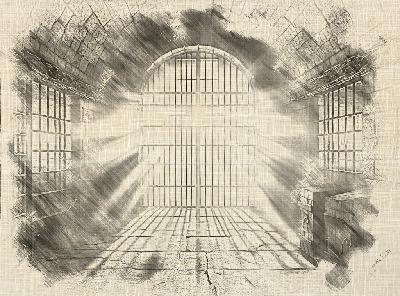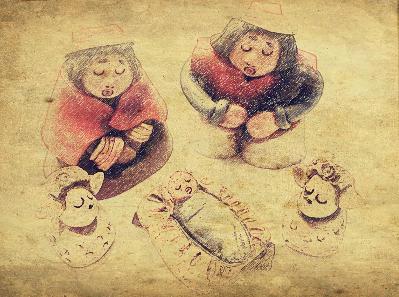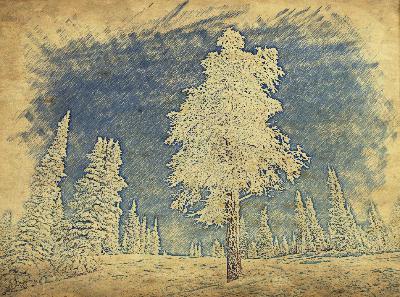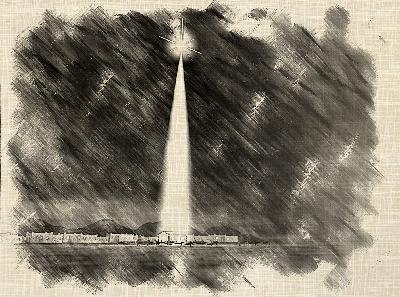A Midnight Symphony: The Celestial Whisper of Hope in “It Came Upon a Midnight Clear”
Description
The Eternal Echo of a Heavenly Melody
In the hushed stillness of a winter’s night, when the world lies dormant beneath a blanket of frost and starlight, there comes a whisper – a melody so ethereal, so transcendent, that it seems to bridge the chasm between heaven and earth. This, dear seeker, is the essence of Edmund Hamilton Sears’ timeless hymn, “It Came Upon a Midnight Clear.” Like a gentle breeze carrying the aroma of divine grace, this song has wafted through the corridors of time, touching hearts and lifting spirits for generations.
As we embark on this journey of reflection, let us open our hearts to the profound truths nestled within these verses. For in doing so, we may find ourselves standing at the threshold of a deeper understanding of God’s boundless love and the transformative power of His message of peace.
The Celestial Chorus: A Divine Interruption
“It came upon the midnight clear,
that glorious song of old,
from angels bending near the earth
to touch their harps of gold”
Picture, if you will, the night of Christ’s birth. The world slumbers, unaware of the cosmic shift about to unfold. In this moment of divine intervention, the veil between the seen and unseen realms grows thin, and the music of heaven spills forth onto the earthly plane.
Sears, in his poetic brilliance, paints a scene reminiscent of the prophet Isaiah’s vision: “I saw the Lord, high and exalted, seated on a throne; and the train of his robe filled the temple. Above him were seraphim, each with six wings… And they were calling to one another: ‘Holy, holy, holy is the Lord Almighty; the whole earth is full of his glory'” (Isaiah 6:1-3, NIV).
Just as Isaiah witnessed the glory of the Lord, Sears invites us to envision angels, those celestial beings of immeasurable grace, bending low to earth. Their golden harps, symbols of divine praise, resonate with a melody that pierces the veil of our mundane existence. This is no ordinary song, dear friends, but a “glorious song of old” – a refrain as ancient as creation itself, yet ever new, ever relevant to the human heart.
The Message of Peace: A Divine Proclamation
“Peace on the earth, good will to men,
from heaven’s all-gracious King.”
The world in solemn stillness lay,
to hear the angels sing.
In these lines, Sears echoes the angelic proclamation recorded in Luke’s gospel: “Glory to God in the highest heaven, and on earth peace to those on whom his favor rests” (Luke 2:14 , NIV). Yet, pause for a moment and consider the profound implications of this heavenly decree.
Peace – shalom in Hebrew – is not merely the absence of conflict, but the presence of wholeness, completeness, and divine harmony. This peace, proclaimed by angels and embodied in the Christ child, is nothing less than the reconciliation of all things to God. As the Apostle Paul would later write, “For God was pleased to have all his fullness dwell in him, and through him to reconcile to himself all things, whether things on earth or things in heaven, by making peace through his blood, shed on the cross” (Colossians 1:19-20, NIV).
And what of this “all-gracious King”? Here, Sears gently nudges us to look beyond the manger, beyond the helpless babe, to see the sovereign Lord of all creation. This King, in an act of unfathomable love, has stooped to enter His creation, to bring peace not through force or decree, but through the vulnerability of incarnation.
The world, Sears tells us, lay in “solemn stillness” to hear this angelic anthem. Oh, that we might cultivate such stillness in our own hearts! In the clamor and chaos of our daily lives, can we not carve out moments of holy quiet, to listen for the whispers of divine grace that still echo through the ages?
The Persistent Melody: A Divine Continuity
Still through the cloven skies they come
with peaceful wings unfurled,
and still their heavenly music floats
o’er all the weary world;
Here, Sears reminds us that the angelic chorus was not a one-time performance, but an ongoing symphony of grace. The skies remain “cloven” – split open, as it were, allowing continued commerce between heaven and earth. This imagery evokes Jesus’ words to Nathanael: “Very truly I tell you, you will see ‘heaven open, and the angels of God ascending and descending on’ the Son of Man” (John 1:51 , NIV).
The angels come with “peaceful wings unfurled” – a beautiful metaphor for the expansive, all-encompassing nature of God’s peace. This is not a peace that discriminates or excludes, but one that spreads wide, offering shelter to all who would seek refuge beneath its wings.
And oh, how weary our world remains! Even as we bask in the glow of technological advancement and human achievement, our hearts still ache with an ancient longing. We are, as Augustine so eloquently put it, restless until we find our rest in God. Yet over this landscape of human striving and suffering, the heavenly music continues to float, a persistent reminder of a peace that transcends all understanding.
The Babel of Humanity: A Divine Counterpoint
above its sad and lowly plains,
they bend on hovering wing,
and ever o’er its Babel sounds
the blessed angels sing.
In these lines, Sears draws a stark contrast between the cacophony of human existence and the harmonious song of heaven. The reference to Babel is particularly poignant, recalling the ancient story of human pride and divine judgment. At Babel, human language was confused, our unity shattered by our own hubris. Yet above this discordant din, the angels continue their song of unity and peace.
Is this not a picture of our world today? Amidst the clamor of conflicting ideologies, the harsh rhetoric of political discourse, the endless chatter of social media, can we still discern that heavenly melody? It hovers there, just above the fray, waiting for those with ears to hear and hearts to respond.
Sears challenges us to lift our gaze from the “sad and lowly plains” of our earthly existence to the higher realities of God’s kingdom. As Paul exhorts us, “Set your minds on things above, not on earthly things” (Colossians 3:2, NIV). For it is only as we attune ourselves to the heavenly frequency that we can hope to bring harmony to our discordant world.
The Burden of Existence: A Divine Invitation
And ye, beneath life’s crushing load,
whose forms are bending low,
who toil along the climbing way
with painful steps and slow,
In this verse, Sears turns his poetic gaze to the human condition, and oh, how accurately he portrays our struggle! Who among us has not felt the weight of life’s “crushing load”? Who has not experienced the slow, painful climb of daily existence?
This imagery calls to mind Jesus’ own words: “Come to me, all you who are weary and burdened, and I will give you rest. Take my yoke upon you and learn from me, for I am gentle and humble in heart, and you will find rest for your souls. For my yoke is easy and my burden is light” (Matthew 11:28-30, NIV).
Sears, in his empathetic portrayal of human suffering, reminds us that the message of Christmas is not just for those who have it all together. Indeed, it is precisely for those who are broken, burdened, and bent low by the weight of life. The good news of great joy proclaimed by the angels is for all people – especially those who feel they have little reason for joy.
The Promise of Joy: A Divine Assurance
look now! for glad and golden hours
come swiftly on the wing.
O rest beside the weary road,
and hear the angels sing!
Here, Sears offers a prophetic word of hope to the weary traveler. “Look now!” he exclaims, urging us to lift our eyes from the dusty path of our troubles to the horizon of divine promise. The “glad and golden hours” he speaks of are not mere wishful thinking, but the assured reality of God’s kingdom breaking into our world.
This is the essence of the Christian hope – not a vague optimism that things might get better, but a confident expectation based on the character and promises of God. As the prophet Isaiah declared, “The people walking in darkness have seen a great light; on those living in the land of deep darkness a light has dawned” (Isaiah 9:2, NIV).
Sears invites us to “rest beside the weary road” – to pause in our relentless striving and allow ourselves to be enveloped by the peace of God. It is in these moments of holy stillness that we can best “hear the angels sing” – that we can attune our hearts to the rhythm of divine grace and allow it to reorient our lives.
The Prophetic Vision: A Divine Culmination
For lo! the days are hastening on,
by prophet seen of old,
when with the ever-circling years
shall come the time foretold
In this final verse, Sears lifts our gaze fr
























